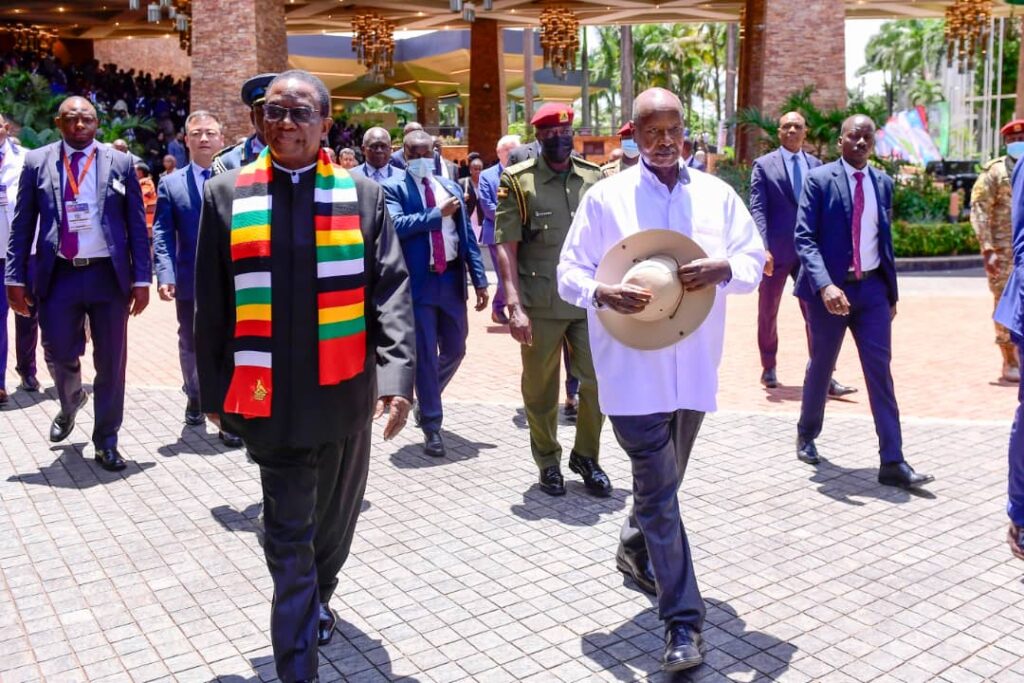
KAMPALA.
President Museveni said the support African nations get from developed countries , while helpful, is not a guarantee for continent ’s sustainable progress.
Mr Museveni recounted a recent disagreement between Uganda and some Western countries following the enactment of legislation concerning homosexuality.
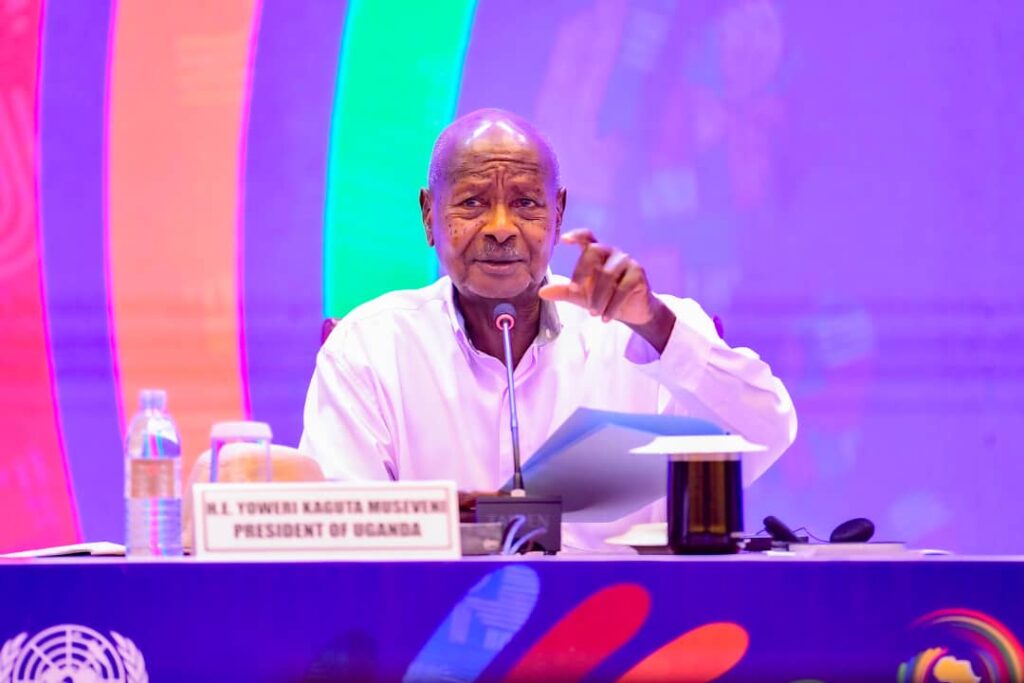
“We had an argument with Europeans recently. We passed a law which was discussing homosexuality here. Then the United States removed us from the AGOA list, and they chased us. The World Bank stopped giving us loans, but our economy still grew by 6percent.”he said
According to the President, Uganda’s resilience amid global criticism demonstrates that the country and indeed Africa can achieve progress even in the absence of external aid.
“What’s crucial for me, apart from our own mistakes, is regional integration. If we avoid them, we can go far,” the President made the remarks today while officiating at the 11th Session of the Africa Regional Forum on Sustainable Development (ARFSD-11), which took place at the Speke Resort Convention Centre in Munyonyo, Kampala.
The three-day forum is held under the theme: “Driving job creation and economic growth through sustainable, inclusive, science and evidence-based solutions for the 2030 Agenda and Agenda 2063”.
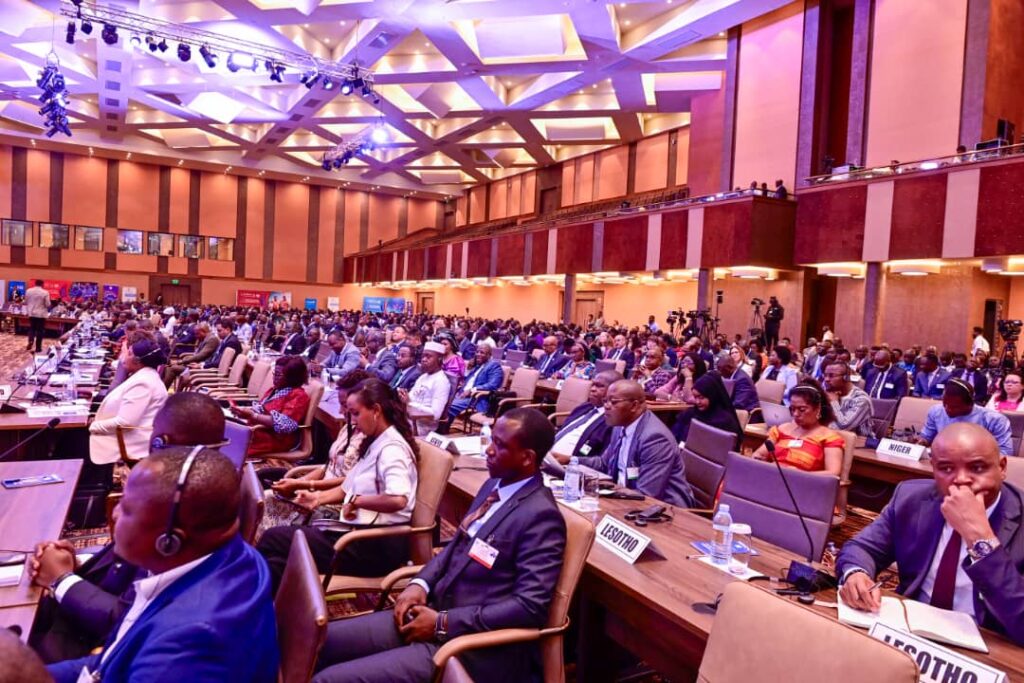
The Africa Regional Forum on Sustainable Development (ARFSD) is an annual platform convened by the United Nations Economic Commission for Africa (UNECA) in collaboration with the African Union and host governments.
Mr Museveni called on African nations to take charge of their development agendas through home grown solutions and regional integration.
At the event, the President was in company of the First Lady and Minister of Education Janet Museveni and H.E Emmerson Dambudzo Mnangagwa, the President of the Republic of Zimbabwe.
“The solutions are with us,” President Museveni emphasized.
President Museveni highlighted that Uganda’s economy has developed rapidly, with or without foreign assistance.
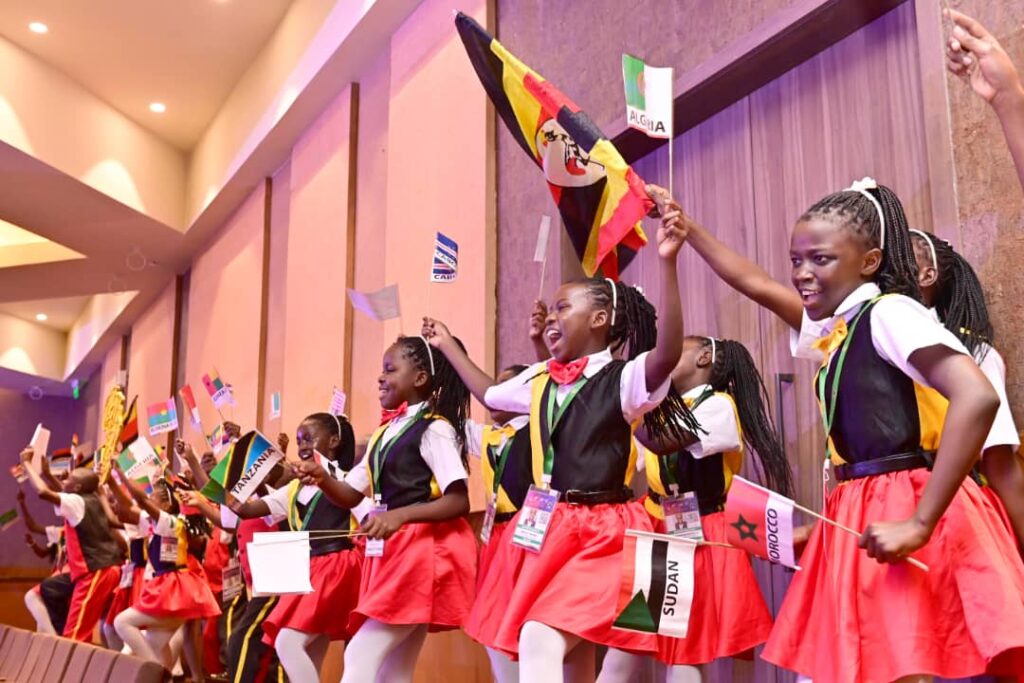
He offered an in-depth reflection on the country’s economic history and transformation, tracing it back to the year 1900 when the British declared Uganda a protectorate after defeating local kings, noting that at that time, Uganda was a pre-capitalist traditional economy based on subsistence agriculture, livestock, artisanal trades (emyooga), fishing, and services such as traditional healing (kuragura).
The President mentioned that the economy operated largely on barter trade (okuchurika), with limited use of cowrie shells (ensiimbi) as currency.
By the time of independence in 1962, colonial authorities had built a small enclave economy; a limited island of modernity surrounded by widespread underdevelopment.
President Museveni explained that his government had to start from scratch, rehabilitating a broken economy while bringing the rest of the population into productive activity.
He noted that the NRM has since made notable strides: first, restoring the enclave economy by reviving some of the 3Cs and 3Ts.
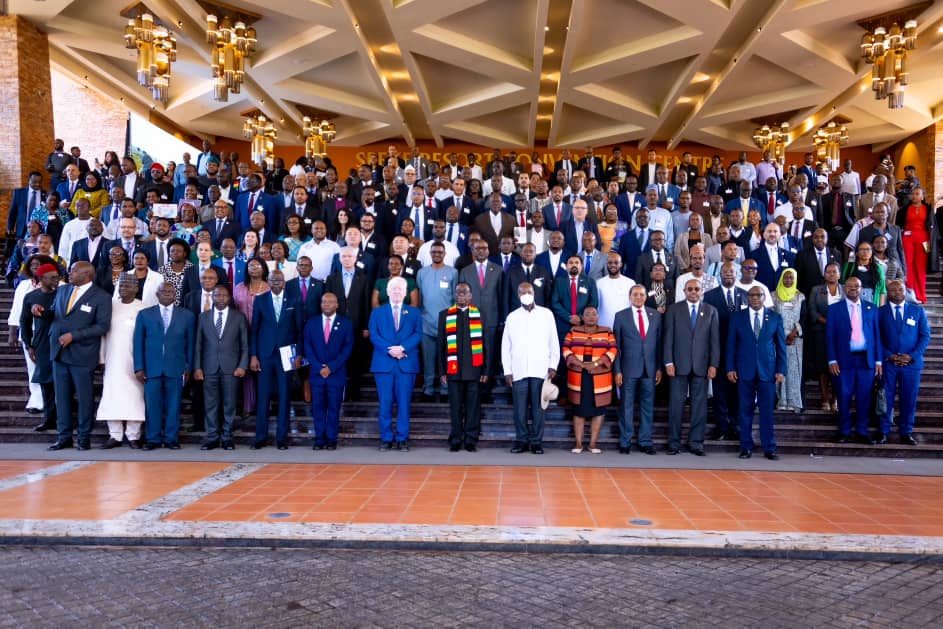
On his part, Mr. Robert Keith Rae, Canada’s Ambassador and Permanent Representative to the United Nations, stressed the central role Africa plays in achieving the Sustainable Development Goals (SDGs).
Mr. Rae acknowledged that while progress towards the SDGs is being made, the path forward remains challenging. He emphasized the importance of continued collective effort to overcome these obstacles.
“We must recognize that the climate crisis is real. Climate change is not an ideology; it’s science. We must confront these facts and work together to help countries adapt and thrive,” he said.
As the President of the UN Economic and Social Council (ECOSOC), Mr Rae expressed Canada’s commitment to supporting African nations in their efforts to tackle these critical challenges.
He also highlighted the ongoing global economic challenges and the negative impact of trade barriers.
“The rhetoric and unnecessary attacks on global trade have had disastrous outcomes on global growth,” he stated, urging countries to come together in solidarity.
Mr. Rae reminded the audience that Africa’s struggles are not isolated; they are shared by people around the world.
“Your struggle is not only your struggle; it is the struggle of everyone. We must show solidarity with one another as we work towards economic and social justice,” he emphasized.
He called for collective action to ensure access to education for all children, especially girls, and to bridge the prosperity gap that still exists.
The Ambassador also highlighted the importance of financing growth and learning from countries that have successfully achieved SDGs.
“We must look at those nations that have succeeded and learn from their experiences,” Mr. Rae said.
The Deputy Secretary-General of the United Nations, H.E. Amina Mohammed, also called on African leaders and stakeholders to confront the hard truths surrounding development financing and to adopt courageous, home grown solutions to accelerate progress on the Sustainable Development Goals.
She acknowledged the persistent financing gaps hindering Africa’s development, noting that the annual shortfall in resources required to achieve the SDGs remains a significant challenge.
“More than 60 percent of African countries are spending a substantial portion of their revenues on debt servicing. This reality cannot be ignored. But these figures do not define us,” she said.